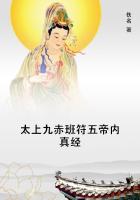The separation from Rome, the suppression of the monasteries, and the curtailment of the powers of the spiritual courts were the only reforms of note during the reign of Henry VIII., unless we name also the new translation of the Bible, authorized through Cranmer's influence, and the teaching of the creed, the commandments, and the Lord's prayer in English. The King died in 1547. Cranmer was now fifty-seven, and was left to prosecute reforms in his own way as president of the council of regency, Edward VI. being but nine years old,--"a learned boy," as Macaulay calls him, but still a boy in the hands of the great noblemen who composed the regency, and who belonged to the progressive school.
I do not think the career of Cranmer during the life of Henry is sufficiently appreciated. He must have shown at least extraordinary tact and wisdom,--with his reforming tendencies and enlightened views,--not to come in conflict with his sovereign as Becket did with Henry II. He had to deal with the most capricious and jealous of tyrants; cruel and unscrupulous when crossed; a man who rarely retained a friendship or remembered a service; who never forgave an injury or forgot an affront; a glutton and a sensualist;although prodigal with his gifts, social in his temper, enlightened in his government, and with very respectable abilities and very considerable theological knowledge. This hard and exacting master Cranmer had to serve, without exciting his suspicions or coming in conflict with him; so that he seemed politic and vacillating, for which he would not be excused were it not for his subsequent services, and his undoubted sincerity and devotion to the Protestant cause. During the life of Henry we can scarcely call Cranmer a reformer. The most noted reformer of the day was old Hugh Latimer, the King's chaplain, who declaimed against sin with the zeal and fire of Savonarola, and aimed to create a religious life among the people, from whom he sprung and whom he loved,--a rough, hearty, honest, conscientious man, with deep convictions and lofty soul.
In the reforms thus far carried on we perceive that, though popular, they emanated from princes and not from the people. The people had no hand in the changes made, as at Geneva, only the ministers of kings and great public functionaries. And in the reforms subsequently effected, which really constitute the English Reformation, they were made by the council of regency, under the leadership of Cranmer and the protectorship of Somerset.
The first thing which the Government did after the accession of Edward VI. was to remove images from the churches, as a form of idolatry,--much to the wrath of Gardiner, Bishop of Winchester, the ablest man of the old conservative and papal party. But Ridley, afterwards Bishop of Rochester, preached against all forms of papal superstition with so much ability and zeal that the churches were soon cleared of these "helps to devotion."Cranmer, now unchecked, turned his attention to other reforms, but proceeded slowly and cautiously, not wishing to hazard much at the outset. First communion of both kinds, heretofore restricted to the clergy, was appointed; and, closely connected with it, Masses were put down. Then a law was passed by Parliament that the appointment of bishops should vest in the Crown alone, and not, as formerly, be confirmed by the Pope. The next great thing to which the reformers directed their attention was the preparation of a new liturgy in the public worship of God, which gave rise to considerable discussion. They did not seek to sweep away the old form, for it was prepared by the sainted doctors of the Church of all ages; but they would purge it of all superstitions, and retain what was most beautiful and expressive in the old prayers. The Ten Commandments, the Lord's Prayer, and the early creeds of course were retained, as well as whatever was in harmony with primitive usages. These changes called out letters from Calvin at Geneva, who was now recognized as a great oracle among the Protestants: he encouraged the work, but advised a more complete reformation, and complained of the coldness of the clergy, as well as of the general vices of the times. Martin Bucer of Strasburg, at this time professor at Cambridge, also wrote letters to the same effect; but the time had not come for more radical reforms. Then Parliament, controlled by the Government, passed an act allowing the clergy to marry,--opposed, of course, by many bishops in allegiance to Rome.
This was a great step in reform, and removed many popular scandals;it struck a heavy blow at the conditions of the Middle Ages, holding that celibacy sprung from no law of God, but was Oriental in its origin, encouraged by the Church to cement its power. And this act concerning the marriage of the clergy was soon followed by the celebrated Forty-two Articles, framed by Cranmer and Ridley, which are the bases of the English Church,--a theological creed, slightly amended afterwards in the reign of Elizabeth; evangelical but not Calvinistic, affirming the great ideas of Augustine and Luther as to grace, justification by faith, and original sin, and repudiating purgatory, pardons, the worship and invocation of saints and images; a larger creed than the Nicene or Athanasian, and comprehensive,--such as most Protestants might accept. Both this and the book of Common Prayer were written with consummate taste, were the work of great scholars,--moderate, broad, enlightened, conciliatory.
The reformers then gave their attention to an alteration of ecclesiastical laws in reference to matters which had always been decided in ecclesiastical courts. The commissioners--the ablest men in England, thirty-two in number--had scarcely completed their work before the young King died, and Mary ascended the throne.
We cannot too highly praise the moderation with which the reforms had been made, especially when we remember the violence of the age.















